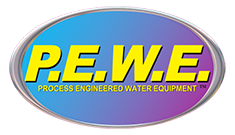
When it comes to wastewater treatment systems, it’s essential that each system is designed and produced under tight quality standards. Water treatment products ought to be constructed using materials that are built for durability and low maintenance. This includes stainless steel, polypropylene, and PVC. These high-quality standards and materials are essential because they help to protect the public from sewage related diseases.
In fact, primary and secondary waste treatments remove approximately 85% to 95% of pollutants from wastewater even before the treated wastewater is disinfected and discharged.
To give you a better idea of how high-quality water treatment systems protect the public from harm, here are just a few diseases that can be caused by improperly-treated wastewater.
E. Coli
Escherichia coli bacteria, better known as E. coli, are bacteria that are found in foods, the environment, and in the intestines of people and animals. E. coli can be transmitted by contaminated water or by person-to-person because of improper hand washing techniques. Symptoms of E. coli infection include nausea, abdominal cramps, vomiting, fever, and diarrhea.
Stomach flu
Viral gastroenteritis, or the stomach flu, is a type of infection that’s caused by a wide array of viruses. However, despite the flu in its name, the stomach flu isn’t caused by influenza viruses. Symptoms of this illness include fever, headache, abdominal cramps, vomiting, and diarrhea. Symptoms begin anywhere between one to two days after infection and can last between one to 10 days.
Encephalitis
There are two types of encephalitis, both of which are acute, inflammatory viral diseases: the St. Louis Encephalitis and West Nile Virus Encephalitis. Both are traditionally transmitted through the bite of an infected mosquito. However, these sewage related diseases can also make their way into waterways when Culex mosquitoes lay their eggs in sewage-contaminated water. In severe infections, symptoms may include body aches, high fever, stiff neck, muscle weakness, and tremors.
Typhoid fever
Typhoid is a type of bacterial infection that can spread through contaminated water, food, and close contact. This infection is caused by the bacteria Salmonella typhoid, which lives only in the bloodstream and intestinal tract of humans. Symptoms include sustained fever, weakness, cough, stomach pains, headache, and loss of appetite.
Looking for high-quality wastewater treatment systems for efficient solids removal? Process Engineered Water Equipment has you covered. Avoid exposure to these common sewage related diseases. For more information on how our water equipment can maximize solids recovery, contact Process Engineered Water Equipment today.


